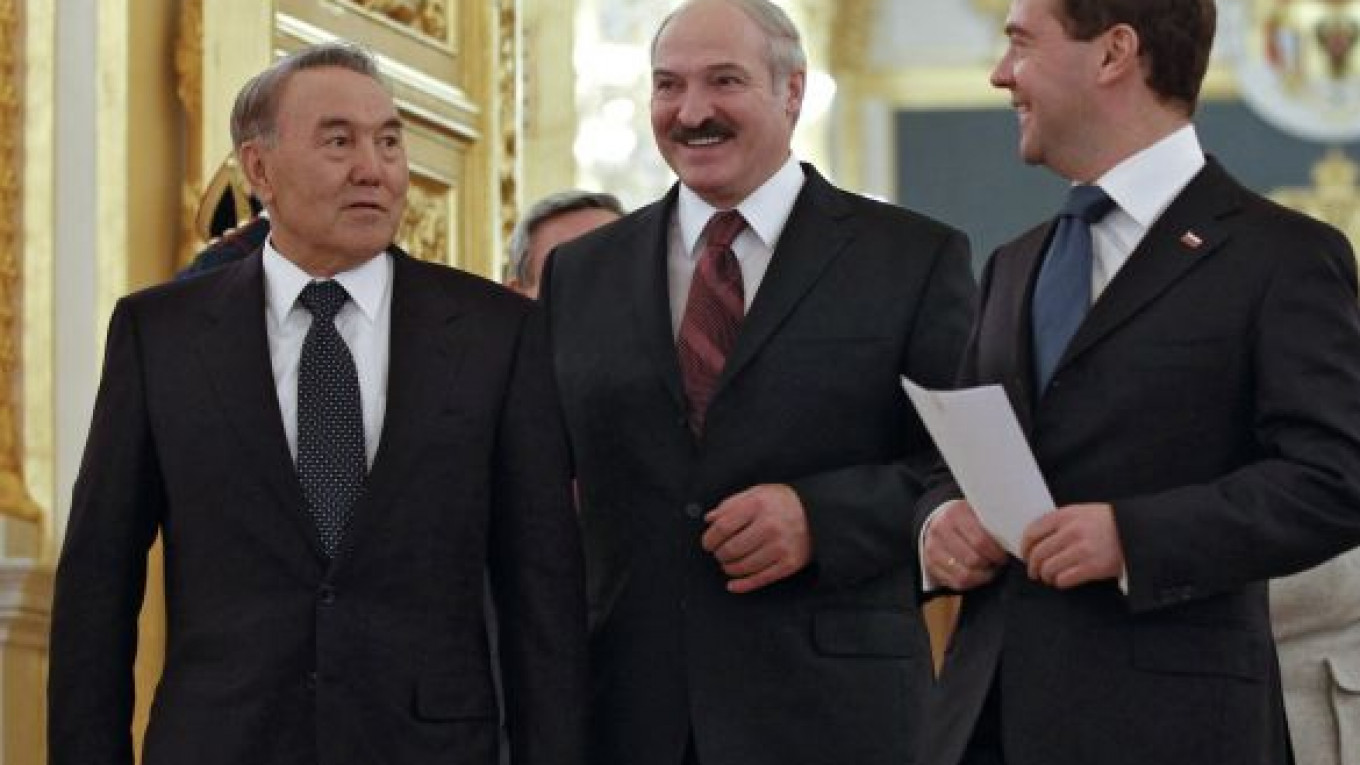Russia has a BRIC of its own, now that Sberbank's macroeconomic research center has united the four largest post-Soviet economies — Belarus, Ukraine, Russia and Kazakhstan — into the BURK group of countries.
Their commonality is their huge potential and their inability to realize it.
BURK is more than just an acronym. "Those four countries are the most interesting in the CIS for both direct and portfolio investors," said Ksenia Yudayeva, head of the Sberbank research center.
The potential of those economies is found in their natural resources and human capital, which received a rather high rating from the World Economic Forum. And they are serious consumer markets too, said Nadezhda Ivanova, department head at the Sberbank center.
At the moment, they have something entirely different in common — their vulnerability to external influences and structural limitations, which casts doubt on the stability of their economic growth, Ivanova said.
"The idea behind BURK is to overcome structural backwardness and bureaucratic and political inertia," Ivanova added.
Russia has to overcome the low competitiveness of its commodity markets and the underdevelopment of its financial markets.
The quality of Russia's institutions is among the lowest in the world, according to the World Economic Forum rating. Of 139 countries, Russia ranks 126th for protection of property rights, 128th for effectiveness of law enforcement agencies and 128th for good governance.
More than 10 percent of the contributors to the World Economic Forum rating mentioned the high risks of corruption and inflation and lack of access to financing in Kazakhstan.
Ukraine lags even further behind in property rights protection, judicial independence and legislative effectiveness in settling conflicts.
Belarus did not even make it into the rating.
Russia and Kazakhstan must solve their problems of dependence on raw materials. Ukraine must find financing for its budget deficit. And Belarus must eliminate its trade imbalance or face default in a few years, Sberbank's researchers said.
BURK is not a very attractive concept for investors, Ivanova said, but that wasn't the point of the research — Sberbank is a retail bank, not an investment bank.
It's a clever idea, but not likely to catch on, Goldman Sachs' Jim O'Neill, creator of the BRIC acronym, told Vedomosti about BURK.
The main idea behind the new acronym is that Russia's economy formed in Soviet times and it remains oriented toward old relations, despite all subsequent reforms, BNP Paribas economist Yulia Tseplyayeva said.
Belarus’ partners in the customs union — Russia and Kazakhstan — made up almost 48 percent of Belarussian foreign trade in 2010, according to that country's state statistics service. Russia received 40 percent of Belarus' exports and provided 52 percent of its imports.
Russia, Kazakhstan and Belarus received 33 percent of Ukrainian exports, with Russia alone getting 26 percent. Those countries also provided 40 percent of its imports.
"BURK will remain bound by firm economic ties, regardless of its political systems," she said.
A Message from The Moscow Times:
Dear readers,
We are facing unprecedented challenges. Russia's Prosecutor General's Office has designated The Moscow Times as an "undesirable" organization, criminalizing our work and putting our staff at risk of prosecution. This follows our earlier unjust labeling as a "foreign agent."
These actions are direct attempts to silence independent journalism in Russia. The authorities claim our work "discredits the decisions of the Russian leadership." We see things differently: we strive to provide accurate, unbiased reporting on Russia.
We, the journalists of The Moscow Times, refuse to be silenced. But to continue our work, we need your help.
Your support, no matter how small, makes a world of difference. If you can, please support us monthly starting from just $2. It's quick to set up, and every contribution makes a significant impact.
By supporting The Moscow Times, you're defending open, independent journalism in the face of repression. Thank you for standing with us.
Remind me later.






